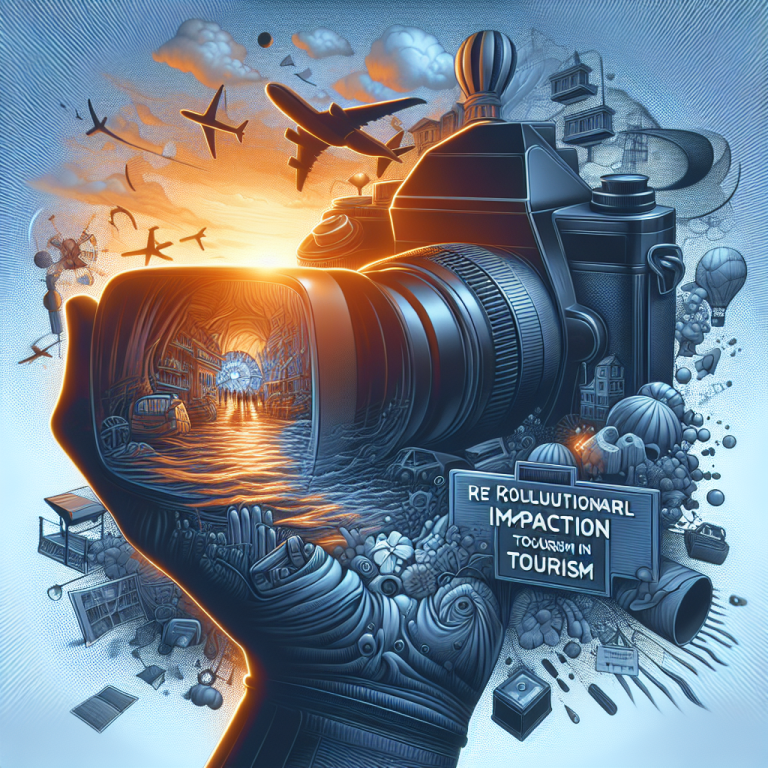Virtual Reality in Tourism: How is it changing the game for the industry?
Virtual reality in tourism is an increasingly popular concept in the travel industry. With the rapid development of VR technology, the travel experience is no longer limited to real trips but opens up a new world for those who want to explore without needing to leave their homes. This article will delve into the various aspects of virtual reality in the tourism industry and how it is changing the way we experience the world.
Introduction to Virtual Reality (VR) and its potential in the tourism industry
What is Virtual Reality (VR)? Overview of VR technology and applications
Virtual reality (VR) is a technology that allows users to experience a simulated 3D environment through devices such as VR goggles, mobile devices, or computers. This technology creates images, sounds, and realistic interactive sensations, helping users feel as though they are living in another space. In the tourism industry, VR can be applied to simulate destinations, helping travelers experience before deciding on the actual trip.
Why is VR suitable for the tourism industry? Exploring breakthrough potential
The tourism industry is always looking for ways to enhance customer experiences. VR allows travel companies to showcase destinations in the most impressive ways, from natural landscapes to unique cultural activities. With VR, travelers can explore famous sites like the Eiffel Tower or the Grand Canyon with just a touch.
From traditional tourism to virtual tourism: VR reshapes the travel experience
As technology continues to evolve, traditional tourism must adapt to the rise of virtual technology. VR is reshaping how we decide and plan our trips, creating experiences that were previously impossible. This shift not only improves customer satisfaction but also optimizes the marketing and sales processes for travel businesses.
The impact of VR on various aspects of the tourism industry
VR allows travelers to ‘test travel’ before deciding: Benefits and practical applications
With VR technology, travelers can now experience trips before booking tickets. Many travel companies have adopted VR to provide experience videos that help customers visualize their destinations better. This is not only an effective marketing tool but also helps customers make more informed decisions.
Enhancing experiences at the destination with VR: [Specific examples of museums/sites/hotels]
At many museums and historical sites, VR is used to enhance the visitor experience. For instance, the Louvre Museum in Paris has adopted VR technology to offer virtual tours, allowing visitors to explore artworks without having to wait in line.
VR and tourism marketing: How travel companies attract customers using VR technology
Travel companies are creatively incorporating VR into their marketing strategies. By developing engaging advertisements that utilize VR technology, they are capturing the attention of customers while creating unforgettable experiences for viewers.
VR in training and development for the tourism industry: Enhancing professional skills
Not only a tool for customers, VR is also being applied in training tourism employees. Staff can experience real-life scenarios in a virtual environment without facing the risks of reality, helping them enhance their skills and handle situations better.
Benefits and challenges of implementing VR in tourism
The unexpected benefits of virtual reality in tourism: Cost savings, reaching new audiences, and more
VR not only helps reduce costs for travel companies but also attracts many new customers. By providing free or low-cost virtual experiences, travelers can explore many destinations without investing time and money in actual trips.
Virtual reality tourism: Opportunities for those unable to travel due to health/financial reasons
Virtual reality tourism opens opportunities for those who cannot travel due to health or financial reasons. VR allows them to explore the world without difficulties while maintaining a connection with local cultures and rich experiences.
The challenges of implementing VR in tourism: Costs, technology, and experience issues
When adopting VR, travel companies face several challenges such as the cost of developing technology, accessibility for consumers, and ensuring the quality of the experience. Poor implementation can lead to negative experiences for customers.
Trends and the future of virtual reality in tourism
Trends in virtual reality tourism: Emerging VR technologies and potential applications
New VR technologies such as 360-degree VR, augmented reality (AR), and AI are gradually being integrated into the tourism sector. These trends not only enhance the travel experience but also open up new opportunities for businesses to develop their services.
Metaverse Tourism: The next step for virtual reality tourism?
With the development of the Metaverse, virtual tourism is evolving into a new phase. Users can not only tour but also interact with virtual characters and other users, creating more unique and vibrant travel experiences than ever before.
[Predictions] The future of the tourism industry under the influence of VR: What changes will occur?
It is predicted that VR will continue to evolve and become an essential part of the tourism industry. Companies will need to quickly adapt to this trend to avoid falling behind. Changes in business models and ways of interacting with customers will be essential for survival and growth.
Conclusion
Virtual reality in tourism: Investing in the future of the tourism industry
The potential of virtual reality in the tourism industry is undeniable. This technology not only creates fresh experiences but can also save costs and attract more customers. Investing in VR will help travel businesses thrive in this transformative period.
Advice for travel businesses wanting to implement VR: Where to start?
Travel businesses need to start by researching and understanding customer needs to create appropriate and truly useful VR applications. Additionally, collaborating with specialists in the VR field is also crucial to ensure that the technology is effectively deployed and provides real value to customers.
Contact us today for tailored consultation!
Intage Vietnam: Your trusted partner for comprehensive and effective market research solutions.
📞 (+8428) 3820 5558
🌐 https://intage.com.vn/
🏢 45 Vo Thi Sau, Da Kao Ward, District 1, Ho Chi Minh City, Vietnam





